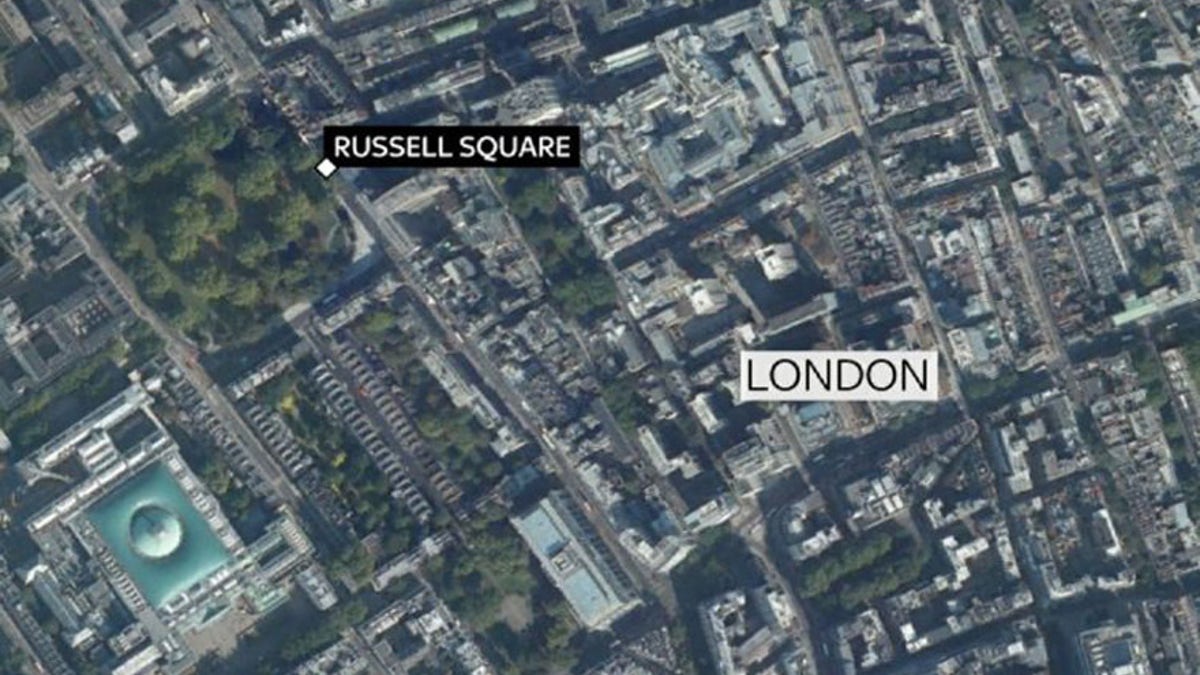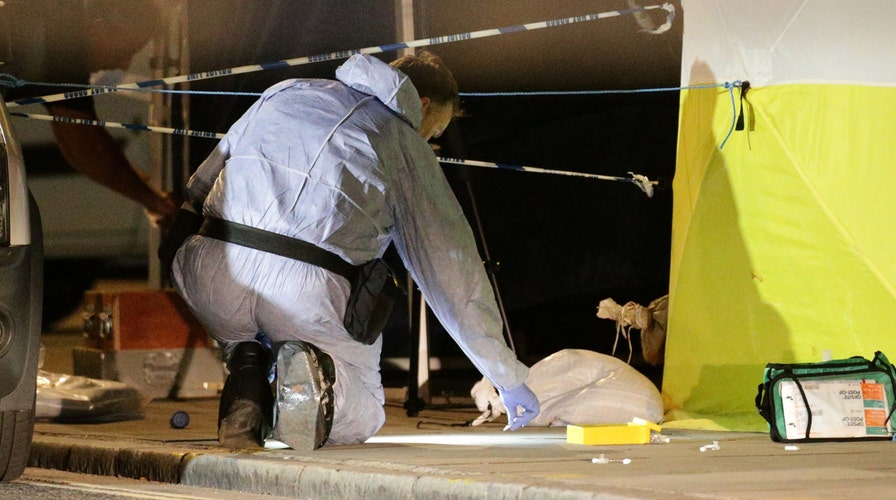London officials: American woman killed in stabbing spree
Five others were injured, suspect is in custody
An American woman was killed and five other people injured in a stabbing attack in London’s Russell Square by a Norwegian man of Somali origin who was arrested after the incident, authorities said.
The investigation “increasingly points to this tragic incident as having been triggered by mental-health issues,” Metropolitan Police Assistant Commissioner Mark Rowley said.

Russell Square is located near the British Museum (bottom left) in central London (SkyNews/Google Earth)
"So far we have found no evidence of radicalization or anything that would suggest the man in our custody was motivated by terrorism," Rowley added.
He said the woman who died was a 64-year-old American. Metropolitan Police named her in a press release as Darlene Horton.
The victim of the fatal stabbing in Russell Square has been named as Darlene Horton https://t.co/X6ekWwILvB pic.twitter.com/PoCimi6Pca
— Metropolitan Police (@metpoliceuk) August 4, 2016
Florida State University announced she was the wife of eminent scholar Richard Wagner, who was in London teaching a summer session class.
"There are no words to express our heartache over this terrible tragedy," FSU President John Thrasher said in a statement. "We are shocked that such senseless violence has touched our own FSU family, and we will do all we can to assist Professor Wagner and his loved ones, as well as his friends and colleagues in the Psychology department, as they mourn."
The five injured people are British, American, Israeli and Australian. None had life-threatening injuries. Two remain in a hospital, while three others have been discharged.
The suspect emigrated from Norway to the United Kingdom in 2002 at about five years old.
Rowley said it appeared to be a "spontaneous attack and that the victims were selected at random." Detectives from the force's murder and terrorism squads interviewed the suspect, his family and witnesses and searched several properties, and found no evidence of radicalization, he said.
"Our thoughts are with the victims and the families of those killed or injured in last night's attack in London," State Department Deputy Spokesman Mark Toner responded.
Police put more officers on London streets after the incident, which came just days after authorities had warned the public to be vigilant in light of attacks inspired by the Islamic State group elsewhere in Europe.
Police said they received "numerous" calls from members of the public at around 10:30 p.m. Wednesday about a man attacking people with a knife in the streets around Russell Square, a busy central area full of students and tourists.
Officers used a stun gun to subdue a 19-year-old suspect, who was arrested on suspicion of murder.
Helen Edwards, 33, who lives in the area, came out for a walk late Wednesday and found armed police near a subway station. In a city with vivid memories of the July 7, 2005, attacks on public transport — two of which struck near Russell Square — she immediately suspected that an attack had occurred.
The scene was described as chaotic. The suspect lunged for anyone he could reach, a witness said. A Spanish family offered comfort to the woman who died from her injuries. One woman in the family was tryied to keep her alive and talked to her.
Ellie Cattle, 21, a student staying in a hotel near the square, said she heard police shouting: "'Put it down, put it down!'
"Then I heard what sounded like a gunshot, but it must have been the Taser," she said. "After that they just stopped shouting. I didn't hear any screams from anyone."
Knives are the most common murder weapon in Britain, which has strict gun-control laws. There were 186 knife killings in the year to March 2015, according to government statistics — a third of all murders.
In the last three years London has seen two knife attacks by people inspired by radical Islam. In May 2013, two al-Qaida-inspired London men killed off-duty soldier Lee Rigby in the street near his barracks. In January, mentally ill Muhiddin Mire tried to behead a London Underground passenger, shouting that he was doing it "for Syria."
The Russell Square incident came within hours of an announcement by London police that they were putting more armed officers on the streets. The idea was to sustain public confidence following attacks by Islamic State-inspired groups in Europe.
Police in Britain do not carry guns for the most part — a principle that remains unchanged. Even with the additional armed officers, most of London's 31,000 police officers will not be armed.
The Associated Press contributed to this report





















